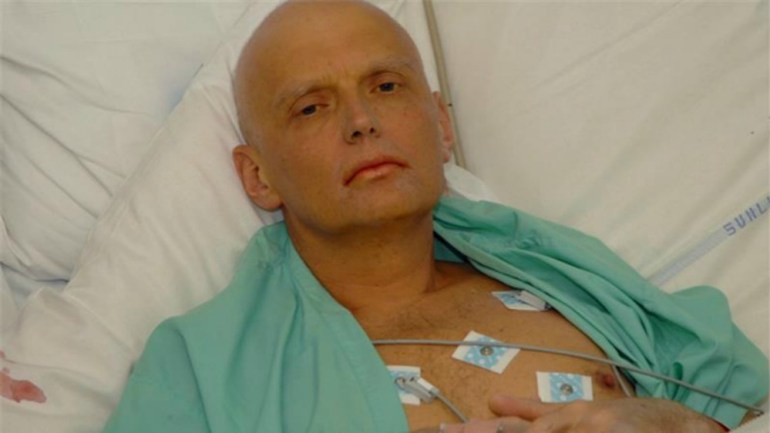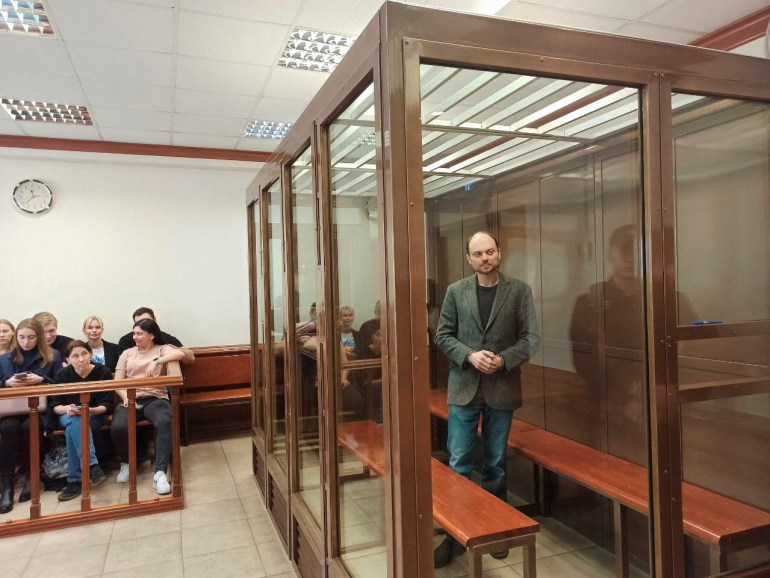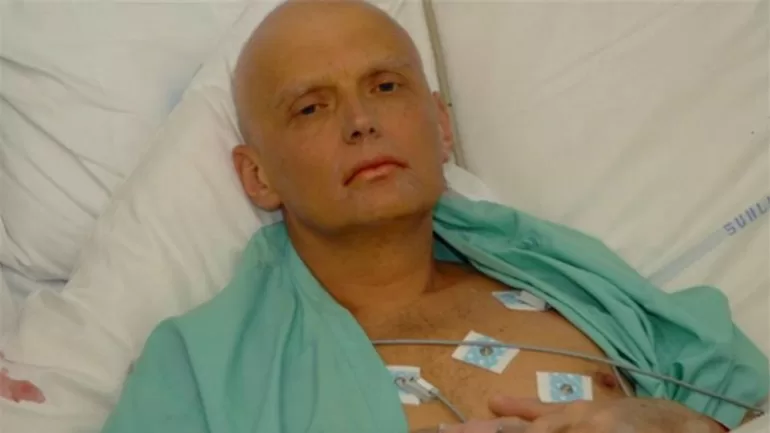Navalny, 47, who Russian prison authorities said had died on Friday, was jailed in early 2021 after returning from Germany, where he was recovering from a near-fatal poisoning attack.
He was sentenced to 19 years in prison on “extremism” charges that rights organisations widely condemned. In late 2023, he was moved to the remote prison colony in the Arctic Circle where he reportedly died.
But Navalny is not the first opposition figure or Kremlin critic to die or be penalised for speaking out against Putin’s government.
Here are a few others.

Alexander Litvinenko
The former Russian FSB spy and Putin critic was killed in 2006 after drinking tea that had been poisoned with polonium-210, a radioactive isotope.
Litvinenko had accused Putin, who was prime minister at the time, of corruption and of orchestrating the Moscow apartment bombings which were used as an excuse to start the 1999 Chechen War.
Litvinenko, who had claimed citizenship in the United Kingdom, drank the poisoned tea during a meeting with two Russian spies in London. The murder is said to have been approved by Putin, but he has denied the allegation.
Mikhail Khodorkovsky
Some of Putin’s high-profile critics have been in exile for years. They include former oil tycoon Mikhail Khodorkovsky, who spent a decade in prison after challenging the Russian leader early in his rule.
Khodorkovsky left Russia after his release in 2013. He lives in London and has financed media projects critical of the Kremlin.
Many of Navalny’s prominent allies similarly fled Russia after his organisations were banned as “extremist”.
But the decision in February 2022 to send troops into Ukraine, which ushered in an unprecedented crackdown at home, proved to be a final nail in the coffin for Russia’s opposition movement.
Russians opposed to Moscow’s attack on Ukraine are now scattered around the world. Many have fled to Europe and Israel.
Boris Nemtsov
In 2015, Boris Nemtsov, the former prime minister, was shot dead as he walked home across a Moscow bridge near the Kremlin.
The 55-year-old had spoken out about Putin’s annexation of Crimea from Ukraine in 2014 and regularly taken part in opposition protests.
Five Chechen men were convicted of killing Nemtsov, but the mastermind of the murder was never found.
Nemtov’s allies pointed to the Kremlin and to Chechen leader and Putin-ally Ramzan Kadyrov, who denied the accusation.

Vladimir Kara-Murza
Opposition politician Vladimir Kara-Murza was jailed in April 2023 for 25 years, the harshest sentence so far, for comments critical of the Kremlin and the military operation in Ukraine.
Since the Ukraine war began nearly two years ago, the Kremlin has passed strict anti-defamation laws that make it illegal to speak out against the military and can result in long-term sentences.
Kara-Murza, 42, was jailed on charges of treason, spreading “false” information about the Russian army and being affiliated with an “undesirable organisation”.
His lawyers say he suffers from serious health problems due to two poisoning attempts in 2015 and 2017.
Yevgeny Prigozhin
Although not a critic of the Kremlin, the Wagner mercenary group founder, Yevgeny Prigozhin, fell foul of his ally Putin months into the Ukraine war.
Prigozhin first rose to prominence in Russia for his fighter role in the war. But he died in a plane crash in August 2023 after criticising the army for failing to accomplish its military goals.
After taking control of Bakhmut, a city in eastern Ukraine, Prigozhin, 62, became more vocal about his dissatisfaction with the Russian defence ministry, and in June, ordered his troops to march towards the Russian border city of Rostov-on-don.
In an address at the time, Putin said that the “armed mutiny” amounted to treason.
The Kremlin has rejected accusations that it assassinated the mercenary chief.
Boris Akunin
Famous author and outspoken Putin critic Boris Akunin, real name Grigory Chkhartishvili, lives in self-imposed exile in Europe. he was added to a list of “terrorists and extremists” by Moscow last month due to his views on the Ukraine war.
The Russian justice ministry said he had spread “false information” and accused him of helping raise money for Ukraine.
On Friday, Akunin said that Navalny’s death had made him “immortal” and he was now a more significant threat to Putin’s regime.
“I also think that a murdered Alexei Navalny will be a bigger threat for the dictator than a living one,” Akunin said.
“Most likely, to drown out voices of protest, he [Putin] will launch a campaign of terror in the country.”
